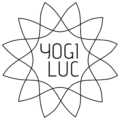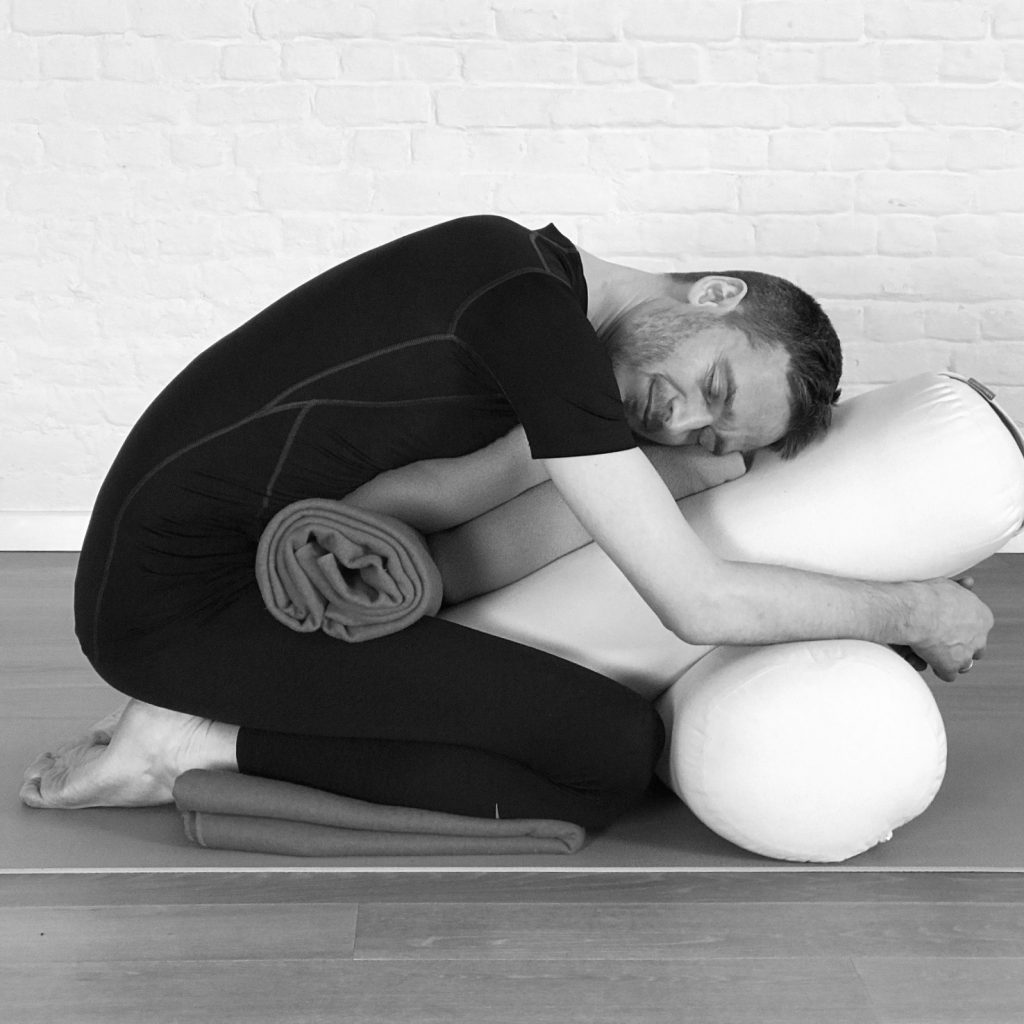COMPASSION
“We are human beings, not human doings”
This is a quote I first read in the introduction of Judith Hanson Lasater’s restorative yoga book “Relax and Renew”. When you google it, the quote (or a variation of it) has been attributed to H.H. the Dalai Lama, spiritual teacher Deepak Chopra, British business mogul Richard Branson, American author Kurt Vonnegut, Kundalini Yoga master Yogi Bhajan, and others. In other words, we basically don’t know who originally said or wrote it. And at the end of the day it doesn’t really matter.
What does matter is that these intelligent and inspiring people from various backgrounds all seem to agree: What we do is not who we are. Ironically, we all know them for what they do! However, I would like to argue that they only seemingly have become well-known for what they have done and accomplished in the world, and in actuality they have become so well-known for who they are.
And this is also what yoga – and even more so restorative yoga – teaches us: We are not our actions, our thoughts, our emotions. Our essential nature is to “simply be”. And as I insert that word “simply”, you may immediately have the reaction that “just being” is not so simple.
“Less self-criticism, more self-care, less judgment, more joy”
Last year, at a Pranayama workshop with Judith Hanson Lasater in London, I wrote down the following insight in my notebook:
“I believe the following thought has been at the back of my mind for the greater part of my life: When I am teaching or singing, in other words offering or doing, this has value and I am deserving of existing in this world, deserving of receiving attention and love. When I am simply being, or even ‘worse,’ asking for something, I am not deserving, I have no right, because being has no value. I should be practicing humility, and stay in the background, almost to the point of erasing myself, so that others who do have something to offer, can take up the space.”
This illustrates how shockingly hard we can be on ourselves! The things we think about ourselves, the internal dialogue we sometimes have, is a dialogue that we would never have with another person, because it would plain and simple be too cruel to talk to someone in this way. However, when it comes to ourselves, we have so little compassion. Why?
Apart from childhood trauma or other trauma many of us have experienced to a certain extent at some point in our lives, we live in a society that values doing over being. Not only that, our society even promotes always doing and having more, with nothing (and no one) ever being enough. But where does that lead us?
SELF-CARE
“Stretch the bow to the very full, and you will wish you had stopped in time.” (Lao Tzu)
In the Spring of 2010, I had a breakdown.
I was working a full-time job on a part-time basis, I was renovating the house I was living in, I was creating and recording music, practising vinyasa and ashtanga yoga full-on, I had many friends, and was working through whatever personal issues I had in regular therapy sessions. I had everything I needed and more to be living a full and happy life, right?
Around Easter, I went to India on a yoga retreat, not on holiday, but as one of the retreat musicians. Through circumstances beyond my control, I was promoted to taking on a much larger responsibility than originally planned. Where a trip to India can be quite challenging in and of itself, my trip quickly turned into the last straw that broke this camel’s back.
Upon my return home, I dropped of my luggage, took a shower, and went straight back to work. I had organized a big international conference to take place a few weeks later and I was on a mission. That morning, I received a phone call from a colleague, and as the call went on, I started noticing that I couldn’t understand a word of what he was saying. Moreover, I felt exhausted and all I wanted to do was for him to stop talking and simply hang up the phone.
When the call finally ended, I looked across to my colleague at the desk opposite mine and to this day I can still hear her say: “Luc, I think you should go home.” I also remember how relieved and grateful I felt that she gave me “permission” to do so.
I went home, went to sleep and ended up staying home for three months. In those months, I was fortunate enough to be in the care of a physician who was also a yogi. He approached my “case” with a more holistic perspective than I believe any other traditional physician might have done.
He guided me on a journey of what I would now refer to as self-care. He instructed me to look at myself as if I were a child that needed to be taken care of. Every day, I had the same single task: to ask that little boy what he would like and wait for his answer. Then take him by the hand and take responsibility to provide for his needs. It was simple, yet revolutionary, because learning to take care of myself was the hardest thing I had ever done.
TIME
“If you change your relationship with time, you will change your life.” (Deepak Chopra)
I remember, as a child there would be times when I would go up to my father and say “I’m bored!”. His reply would always be the same: “make something”! And so I would bake, sew, knit, crochet, tinker with origami, crepe paper flowers, calligraphy, pottery, woodworking,… I did it all.
Today I cannot imagine ever being bored. I cannot remember having been bored at any given time in the past 10 or even 20 years. When I think about my father’s sentence “make something” now, the number one thought that pops into my head is “If only I could make TIME”.
Who doesn’t every once in a while, or even on a regular basis say “If only I had the time,” “I am running out of time,” “Stop wasting my time,”“That was about time”? Time (and silence for that matter) have become so valuable that they have started to feel like a luxury product that is only available to the happy few. That being said, all of us have the exact same amount of time each day.
“The bad news is time flies. The good news is you’re the pilot!” (Michael Althsuler)
There are 24 hours in the day, to stay healthy we need 7 to 8 hours of sleep each night, which leaves 16 hours or so “to get everything done”. Add to the equation that kids, family, boss, coworkers, and loved ones expect us to be plugged in and available 24/7. Is it any wonder that how we spend those 16 hours can turn out to be quite a stressful experience?
That being said, we talk about time as if it were a finite object. But time is a psychological experience. My favorite utterance about time on the positive side of the spectrum and the experience it refers to, at least suggests, or even proves this is “losing track of time”.
Artists or athletes (and yogis) sometimes refer to this experience as “being in the zone”. We encounter it when we are fully present, usually because we are doing something that we are very passionate about, that we love, that comes naturally, that represents who we are at the core of our being. And while we may be in the zone because of something we appear to be doing on the surface, it is not so much about the doing, it is rather about the being in that moment.
“Be here now” (Ram Dass)
“Be here now” is the title of a book by American psychologist and spiritual teacher Ram Dass that was published in 1971. It was one of the first books to introduce the essence of yoga and meditation in the West.
I have honestly not (yet) read the book (If only I had the time! haha), but its title, attributed as a statement made by singer and teacher Bhagavan Das, beautifully sums up the purpose of practising yoga and meditation. The purpose of practising yoga and meditation is to be here now, to live in awareness, to become a silent witness, to be engaged and detached at the same time.
At our core, we are so caught up about time, because we only have one certainty in life, and that is that we are all going to die. None of us know how much time we have left, so taking our time to slow down and “do nothing” or “nothing productive” feels uncomfortable.
If only we could always be in the now (not ruminating over the past or fantasizing about the future), this would change our relationship to time fundamentally. It would make us feel overall more at ease with, less anxious about, and (in a good way) more disconnected from the concept or dare I say self-inflicted wound of time.
RESTORATIVE YOGA
“Restorative yoga is the use of props to put the body in positions of comfort and ease to support relaxation and health.” (Judith Hanson Lasater)
How are compassion, self-care and time linked to the practice of Restorative Yoga? Restorative Yoga supports health and relaxation by inviting us to create a compassionate space in which we can allow ourselves to carve out the time to take care of ourselves. This is reflected in the following essential elements of a Restorative Yoga practice:
Using Props so we can feel held with compassion.
Inviting Silence so we can hear our deepest needs.
Staying for Time so we can ultimately heal ourselves.

